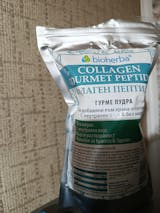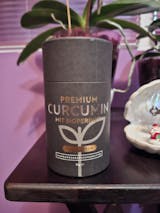Collagen for joints: a complete guide
Joint health is essential for maintaining an active and fulfilling lifestyle. As we age, our body’s natural collagen levels begin to decline, often leading to joint pain, reduced mobility, and other musculoskeletal issues. Collagen supplementation has become a popular method for supporting joint health, but not all products are created equal. In this in-depth analysis, we’ll look at how to choose the best collagen for joints and why it’s important to look for formulas that contain more than just collagen.
What is collagen and why is it essential for joints?
Collagen is the most abundant protein in the human body, making up approximately 30% of all proteins in the body. It functions as a major structural element in connective tissues, including skin, tendons, ligaments, and cartilage. In the context of joint health, collagen plays a fundamental role in maintaining the integrity of cartilage tissue, which acts as a shock absorber between bones.
Physiological role of collagen in joint function
Articular cartilage contains a significant amount of type II collagen, which creates a fibril network that gives cartilage its strength and elasticity. This collagen matrix is vital to the cartilage's ability to withstand compressive forces during movement. As we age, endogenous collagen production decreases, leading to a gradual thinning of the cartilage and an increased risk of degenerative joint diseases such as osteoarthritis.
Biochemical studies have shown that collagen fibers not only provide mechanical support for joints, but also participate in complex cellular signaling pathways that regulate inflammation and tissue regeneration. This explains why optimal collagen levels are crucial for maintaining joint homeostasis.
Different types of collagen and their importance for joint health
There are at least 28 different types of collagen identified in the human body, each with a specific structure and function. However, when it comes to joint health, certain types play a more significant role than others.
Type I Collagen: Basis of Connective Tissue
Type I collagen is the most abundant type of collagen in the human body, making up approximately 90% of the body's collagen. It forms the basis of skin, bones, tendons, and ligaments. Although not the primary component of articular cartilage, type I collagen contributes significantly to the strength of periarticular structures, which indirectly improves joint function.
Collagen type II: Specific to articular cartilage
Type II collagen is the dominant protein in articular cartilage, constituting 50-60% of the dry weight of cartilage. Its unique three-dimensional structure allows for the absorption of mechanical stress during loading of the joint. Supplementation with type II collagen is particularly valuable in interventions aimed at improving joint health, as it directly supports the repair of cartilage tissue.
Collagen Type III: A Support Element for Elasticity
Although not directly related to cartilage, type III collagen plays an important role in tissue elasticity and is often found in association with type I collagen. It is essential for the strength of blood vessels and other elastic tissues around joints, which indirectly affects their health and function.
Collagen types V and X: Specialized functions in joint biomechanics
These less abundant types of collagen perform specialized functions in the organization of collagen fibrils and calcification of cartilage. Type V collagen is involved in the regulation of fibrillogenesis, while type X is associated with endochondral ossification, a process that is important in the repair of damaged cartilage tissue.
Understanding the different types of collagen and their specific functions in joint health is critical when choosing collagen supplements. Optimal formulas should contain a variety of collagen types to provide comprehensive joint support.
Why it is important to choose multi-component collagen formulas
Modern scientific research shows that the effectiveness of collagen supplements is significantly increased when they contain not only collagen, but also other bioactive components that act synergistically to improve joint health.
Limitations of monocomponent collagen products
Collagen-only supplements often demonstrate suboptimal bioavailability and limited therapeutic efficacy. This is due to the fact that joint health is a multifactorial process that requires not only structural proteins, but also components that support anti-inflammatory processes, synovial fluid synthesis, and cartilage regeneration.
Clinical studies indicate that taking isolated collagen may lead to temporary improvement, but long-term results are often unsatisfactory due to the body's inability to optimally integrate exogenous collagen without the presence of cofactors.
Synergistic effect of multi-component formulas
Rich collagen formulas, which include multiple types of collagen and additional bioactive ingredients, provide a comprehensive approach to joint health. These products address not only the structural aspects of joint function, but also the metabolic and inflammatory processes that influence cartilage degeneration.
Key components that should be present in quality collagen formulas
When choosing a collagen supplement for joints, it is important to look for products that contain not only a variety of collagen types, but also additional components that improve the absorption and effectiveness of collagen.
Vitamin C: Catalyst of collagen synthesis
Vitamin C (ascorbic acid) is an essential cofactor in collagen biosynthesis. It participates in the hydroxylation of proline and lysine - amino acids that are critical for the formation of a stable triple helix of the collagen molecule. Vitamin C deficiency leads to impaired collagen structure and impaired tissue regeneration.
Studies have shown that taking collagen and vitamin C together leads to a greater improvement in osteoarthritis symptoms than taking collagen alone. The optimal dosage of vitamin C in collagen supplements ranges between 50-100 mg per daily dose.
Hyaluronic Acid: A Main Component of Synovial Fluid
Hyaluronic acid is a high-molecular polysaccharide that plays a central role in maintaining the viscosity of synovial fluid. It acts as a lubricant in the joints, reducing friction between cartilage surfaces and helping to absorb shock loads.
Clinical studies have shown that the combination of collagen and hyaluronic acid leads to more effective pain relief and improved mobility in patients with degenerative joint diseases. The recommended hyaluronic acid content in collagen supplements is between 40-100 mg daily.
MSM (methylsulfonylmethane): Anti-inflammatory modulator
MSM is an organic sulfur compound with anti-inflammatory properties that helps form disulfide bonds in collagen structures. Its presence in collagen formulas contributes to reducing joint inflammation and relieving pain.
Research has shown that MSM enhances the efficacy of collagen supplements by inhibiting pro-inflammatory cytokines and stimulating the antioxidant defenses of cartilage cells. Effective doses of MSM in collagen formulas typically range between 500-1500 mg daily.
Glucosamine and Chondroitin: Structural Elements of Cartilage
Glucosamine and chondroitin are endogenous components of cartilage tissue that participate in the synthesis of proteoglycans - macromolecules that ensure the hydration and elasticity of cartilage. Their inclusion in collagen formulas provides additional building blocks for the restoration of damaged cartilage tissue.
Systematic reviews of clinical trials support the use of a combination of collagen, glucosamine, and chondroitin for effective management of osteoarthritis symptoms, especially in more advanced cases. Optimal doses are approximately 1500 mg of glucosamine and 1200 mg of chondroitin daily.
| Component | Function | Optimal daily dose |
|---|---|---|
| Collagen type II | Main structural component of articular cartilage | 10-40 mg (hydrolyzed) |
| Collagen type I and III | Support of periarticular structures | 5-10 g (hydrolyzed) |
| Vitamin C | Cofactor in collagen synthesis | 50-100 mg |
| Hyaluronic acid | Improves the viscosity of synovial fluid | 40-100 mg |
| MSM | Anti-inflammatory effect | 500-1500 mg |
| Glucosamine | Building block of cartilage | 1500 mg |
| Chondroitin | Maintains cartilage hydration | 1200 mg |
How to recognize quality collagen for joints?
In a saturated market with numerous collagen products, recognizing quality supplements requires careful evaluation of several key characteristics.
Origin and method of production
Origin and method of production
The quality of a collagen supplement largely depends on the source of the collagen and how it is processed. Marine collagen, extracted from fish skin and scales, shows higher bioavailability due to the smaller size of the peptide molecules compared to bovine or porcine collagen. Hydrolyzed collagen (collagen peptides) offers significantly better absorption than native collagen because it is enzymatically broken down into smaller fragments that easily pass through the intestinal barrier.
Optimized extraction methods, such as enzymatic hydrolysis at controlled temperatures, preserve the bioactivity of collagen peptides and minimize the degradation of valuable amino acids. Certified production processes, meeting GMP (Good Manufacturing Practice) standards, guarantee consistent quality and safety of the final product.
Molecular weight and absorption
Scientific research clearly shows that the molecular weight of collagen peptides is a determining factor in their bioavailability. The optimal range for maximum absorption and efficacy is between 3000-10000 daltons. Collagen peptides with lower molecular weight demonstrate higher oral bioavailability and more efficient transport to target tissues, including articular cartilage.
Quality collagen products often list the average molecular weight of the peptides on the label or in the technical documentation. Preference should be given to products that explicitly declare the presence of low-profile collagen peptides obtained through controlled enzymatic hydrolysis.
Cleanliness and absence of contaminants
Superior joint collagen formulas are characterized by high standards of purity and the absence of potentially harmful additives. Conscientious manufacturers invest in regular testing for heavy metals (mercury, lead, cadmium), microbiological contaminants, and allergens. Certificates of Analysis (CoA) and third-party testing provide additional assurance of product quality and safety.
Consumers should avoid products containing unnecessary fillers, artificial colors, preservatives, and flavors, which can compromise the efficacy of collagen and cause adverse reactions. Hypoallergenic formulations, free of gluten, lactose, and common allergens, are especially preferred by people with sensitive digestive systems or specific dietary restrictions.
Practical tips for choosing collagen for joints
Selecting the optimal collagen supplement for joints requires a methodical approach based on objective criteria and individual needs. The following practical tips can guide consumers in the selection process.
Label and ingredient analysis
A careful examination of the label reveals essential information about the quality and potential efficacy of a collagen product. Look for the following indicators of a high-quality supplement:
- Clear indication of collagen types and their proportions
- Declaration of the origin of collagen (marine, bovine, porcine)
- Presence of synergistic components such as vitamin C, hyaluronic acid, MSM
- Absence of potentially problematic ingredients (artificial sweeteners, preservatives)
- Information about the molecular weight of collagen peptides
- Transparency about the production process and quality standards
The amount of active ingredients is essential for therapeutic efficacy. Avoid products that hide the actual amounts in "proprietary blends" without specification of the individual components.
Evaluation of clinical documentation
Collagen formulas that are backed by clinical research demonstrating their efficacy deserve preferential consideration. Reputable manufacturers invest in scientific research and clinical trials that validate the effectiveness of their products. This data may include:
- Randomized, placebo-controlled clinical trials
- Biomarker studies showing increased collagen production in cartilage
- Assessments of improvement in functional joint mobility
- Data on reduction of inflammatory markers and pain symptoms
The results of these studies are often published in peer-reviewed scientific journals or presented at medical conferences, which lends additional credibility to the product.
Customizing the selection according to individual needs
The optimal collagen supplement varies depending on an individual's specific health profile, including age, type of joint problems, co-morbidities, and personal preferences.
For individuals with moderate to advanced osteoarthritis, formulas high in type II collagen combined with chondroitin and glucosamine have shown the best results. Athletes and active individuals may benefit from formulas enriched with anti-inflammatory components such as curcumin and boswellia, which aid in recovery after intense exercise.
Adults over 60 years of age typically require higher doses of collagen (15-20 g daily) due to significantly reduced endogenous synthesis. People with sensitivities to beef or pork products should choose marine collagen or plant-based alternatives that stimulate endogenous collagen synthesis.
Optimal protocols for collagen supplementation
The maximum efficacy of collagen supplements depends not only on the choice of a quality product, but also on the correct administration regimen, including dosage, time of administration, and duration of therapy.
Dosage and time of administration
Scientific studies demonstrate a dose-dependent effect of collagen peptides, with optimal results at the following dosage regimens:
- To maintain healthy joints: 5-10 g of hydrolyzed collagen daily
- For moderate joint problems: 10-15 g daily
- For osteoarthritis and intense sports activity: 15-20 g daily
Regarding the time of administration, pharmacokinetic studies show that the absorption of collagen peptides is optimized when taken on an empty stomach, 30-60 minutes before a meal or 2-3 hours after a meal. Consumption in the evening, before bedtime, is associated with increased effectiveness, as regenerative processes in connective tissues are intensified during sleep.
Dividing the daily dose into 2-3 doses may improve bioavailability and minimize gastrointestinal discomfort in sensitive individuals. Consistency of intake is critical - daily supplementation is necessary to maintain therapeutic levels in the body.
Duration of therapy and expected results
Collagen supplementation requires patience and persistence due to the cumulative nature of the effects on joint health. Clinical studies outline the following timeline of therapeutic results:
- 2-4 weeks: Initial reduction in inflammation and joint pain
- 6-8 weeks: Significant improvement in joint mobility and functionality
- 3-6 months: Structural improvements in cartilage tissue visible through imaging
- 6+ months: Maximum therapeutic benefits and stabilization of joint health
To achieve optimal results, an initial intensive course of 3-6 months with high doses is recommended, followed by maintenance therapy with lower doses for long-term prevention of degenerative processes.
Frequently Asked Questions About Collagen Supplements for Joints
Consumers often have specific questions about collagen products that can influence their choice and expectations for results. Here are answers to the most common inquiries:
Can collagen supplements interact with medications?
Collagen peptides generally have an excellent safety profile and minimal potential for drug interactions. However, there are a few specific scenarios that require attention:
- In patients taking anticoagulants such as warfarin, some collagen-rich formulas containing boswellia or curcumin may enhance the anticoagulant effect.
- Glucosamine, often included in collagen formulas for joints, could theoretically affect blood sugar control in diabetics, necessitating closer monitoring.
- Collagen products with high calcium content may interfere with the absorption of certain antibiotics (tetracyclines, fluoroquinolones) and should be taken at least 2 hours apart.
Consultation with a medical professional is recommended for individuals taking chronic medication, especially for complex health conditions.
How long does it take to see results from collagen supplementation?
The time frame for the therapeutic effects of collagen supplements to manifest varies depending on individual factors such as age, degree of joint damage, metabolic profile, and the specific formulation of the product.
Clinical data show that subjective improvement in pain symptoms can be observed as early as the first 2-4 weeks of regular supplementation. Objective structural changes in cartilage tissue, measurable by imaging methods such as magnetic resonance imaging, are usually recorded after 3-6 months of continuous therapy with optimal doses.
It is important to note that collagen supplementation should be considered as a long-term strategy for maintaining joint health, not a quick fix for existing problems. The cumulative effect of continued use shows the most significant results in preventing degenerative processes.
Does marine collagen have an advantage over other types?
Comparative analyses between different sources of collagen reveal specific advantages of marine collagen in the context of supplementation for joint health:
- Higher bioavailability
- Higher bioavailability due to lower molecular weight (average 2000-3000 daltons compared to 3000-6000 daltons for bovine collagen)
- More efficient absorption in the gastrointestinal tract with a 1.5 times higher absorption rate
- Environmental sustainability – marine collagen is typically extracted from by-products of the fishing industry, which reduces waste
- Absence of risk of prion diseases associated with bovine sources
- Higher compatibility in individuals with religious restrictions on beef or pork consumption
Despite these benefits, marine collagen contains primarily type I collagen, while joint cartilage is composed primarily of type II collagen. Therefore, optimal joint formulas often combine marine collagen with type II collagen from other sources for maximum efficacy.
Alternative and complementary approaches to maintaining joint health
Although collagen supplementation is an effective strategy for improving joint health, the best results are achieved through an integrated approach combining various therapeutic interventions.
Nutritional strategies to stimulate endogenous collagen
Optimizing your diet can significantly boost your body's natural collagen production. The following nutrients and food sources deserve special attention:
- Proteins with high biological value – provide the amino acids proline, glycine and hydroxyproline, necessary for collagen synthesis (eggs, fish, chicken)
- Vitamin C rich foods – citrus fruits, kiwi, red peppers, which promote the hydroxylation of proline in the collagen molecule
- Anthocyanins and flavonoids – found in dark blue and purple fruits (blueberries, blackberries), which protect existing collagen from oxidative degradation
- Sulfur-containing amino acids – present in onions, garlic and cruciferous vegetables, stabilize collagen bonds
- Omega-3 fatty acids – found in fatty fish (salmon, mackerel, sardines), which modulate inflammatory processes in the joints
Integrating bone broth into your weekly menu provides a direct source of gelatin and collagen fragments that can aid in the repair of joint tissues. Traditionally prepared broths, boiled for at least 12-24 hours, extract the maximum amount of collagen from bones and connective tissues.
Physical activity and joint mobility
Moderate physical activity plays an essential role in maintaining joint health through several mechanisms:
- Stimulating synovial circulation, which delivers nutrients to avascular cartilage
- Strengthening the muscles around the joints, reducing mechanical stress on the cartilage
- Improving proprioception and joint stability, minimizing the risk of injuries
- Activation of chondrocyte metabolism and synthesis of new cartilage matrix
Optimal forms of physical activity for maintaining joint health include:
- Swimming and water aerobics – provide weight-bearing movement, ideal for injured joints
- Yoga and tai chi – improve range of motion and joint mobility with minimal risk of injury
- Low-resistance cycling – strengthens the muscles around the knee joint without significant compressive load
- Long-distance walking – stimulates metabolic activity in articular cartilage through physiological stress
It is important that exercises are adapted to the individual condition of the joints and general health, with a gradual increase in intensity to minimize the risk of injury.
Conclusion and summary recommendations
Choosing the optimal collagen for joints is a multifactorial process, requiring careful evaluation of the source, composition, additional components, and individual health needs. Rich collagen formulas containing a variety of collagen types and synergistic ingredients demonstrate significantly higher efficacy compared to monocomponent products.
Marine collagen, with its superior bioavailability, combined with type II collagen and supporting components such as hyaluronic acid, MSM, glucosamine and chondroitin, represents a promising strategy for maintaining and restoring joint health. Adequate dosage, consistent intake and long-term adherence to therapy are key to achieving optimal results.
The highest effectiveness is achieved through a holistic approach integrating collagen supplementation with an appropriate diet rich in collagen-stimulating nutrients and a personalized physical activity program. This multimodal approach addresses not only structural cartilage repair, but also optimizes joint biomechanics, muscle support and metabolic homeostasis.
In the context of growing interest in preventive medicine and active aging, collagen supplements for joints represent a valuable tool for maintaining mobility and quality of life at all ages. Informed choices based on scientific evidence and personalized needs remain fundamental to maximizing the therapeutic benefits of these products.

















